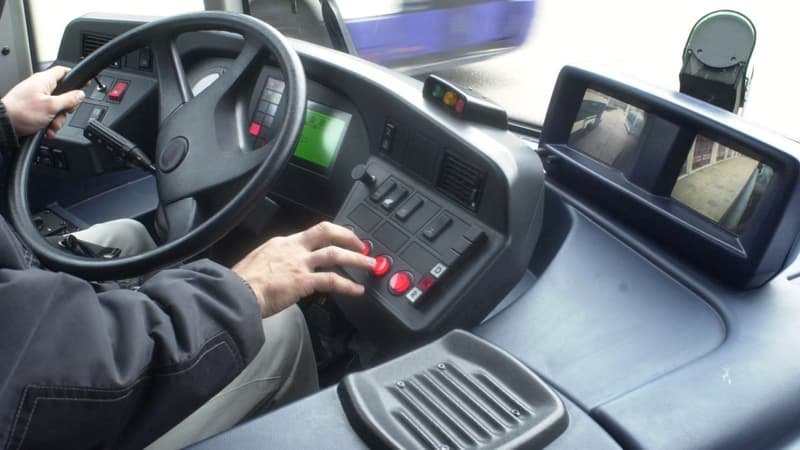The situation remains tense on the part of urban bus and coach drivers and maintenance specialists in France. Resignations and absenteeism continue to affect operators, resulting in fewer frequencies than contractual targets and therefore decreased quality of service.
The problem is not new and we know the reasons for these difficulties: unattractive salaries, complicated schedules… And large transport companies such as RATP, Transdev or Keolis have multiplied communication operations to find out about the position, recruit and above all build loyalty.
But today many difficulties persist at the local level. “We doubled the number of our hires last year compared to 2021”, stresses for BFM Business, Marie-Ange Debon, chairwoman of the board of directors of Keolis, a subsidiary of the SNCF present in many French bus networks and also in the foreign.
Black spots
“But these contracts must be observed in the light of the age pyramid, departures (with strong poaching in the logistics sector) and absenteeism. Looking at the contracting figures is not enough,” he continues.
Thus, if “the tension has decreased with normalization, there are still black spots” in certain communities, acknowledges the leader who prefers not to give precise figures. A situation that is found with other operators such as the RATP in Ile-de-France.
The issue is not so much hiring but retaining drivers. “It’s a real problem,” admits Marie-Ange Debon, who highlights Keolis’s efforts to adapt to this new situation.
“We are working hard on the organization of work because it is the great expectation of the new audiences we are targeting, such as young people or women. We have set up an exchange exchange that allows drivers to manage schedules among colleagues for more flexibility, seniority is no longer an important criterion for promotion,” explains the president.
“Little-known development prospects are also highlighted with the possibility that a driver could easily become a seller or a regulator,” he continues.
“Move the Lines”
The possibility for 18-year-olds to obtain a D driving license (instead of 21) has also helped to better attract this population.
But today, we still have to speed up. To quickly reduce the black spots, but also to anticipate the next massive flows of travelers, in particular with the Olympic Games in Paris next year. In short, it is about generating a “supply shock” as concern grows.
“We are going to have to transport in mid-August what we usually transport on a peak day,” explained Valérie Pécresse, president of the regional transport authority, Ile-de-France Mobilités (IDFM): 9 to 10 million people, in 25 Olympic sites, mainly concentrated in Paris and Seine-Saint-Denis.
“The sector is working,” says Marie-Ange Debon. Thus, for the first time, a large collective employer brand campaign is currently being launched, it is called “Make the ranks move”.
The concern of the Olympics
The device is available with a site: “more than a website, it is an experience to better understand, through puzzles, mini-games and videos, all the professions of urban transport. This site also includes a map of France to find work and training near you,” says the Union of Public Transport and Railways, which oversees the operation.
But also, “a manifesto film, a campaign on social networks” and a special bus that will tour France from the second half of the year “to meet future candidates.”
For what quantitative objectives? “We have not set any collective targets because the situation differs between operators,” says Marie-Ange Debon.
The RATP, for example, on the front lines of the shortage problem, seeks to recruit 2,700 bus drivers this year (double compared to 2022), including 2,400 in Paris and the inner suburbs for a total of 6,600 hires for all Professions. A plan considered “unprecedented”.
Proof that the seduction arguments are beginning to bear fruit, the management indicates that it received “almost 91,500 CV” in 2022.
Source: BFM TV


